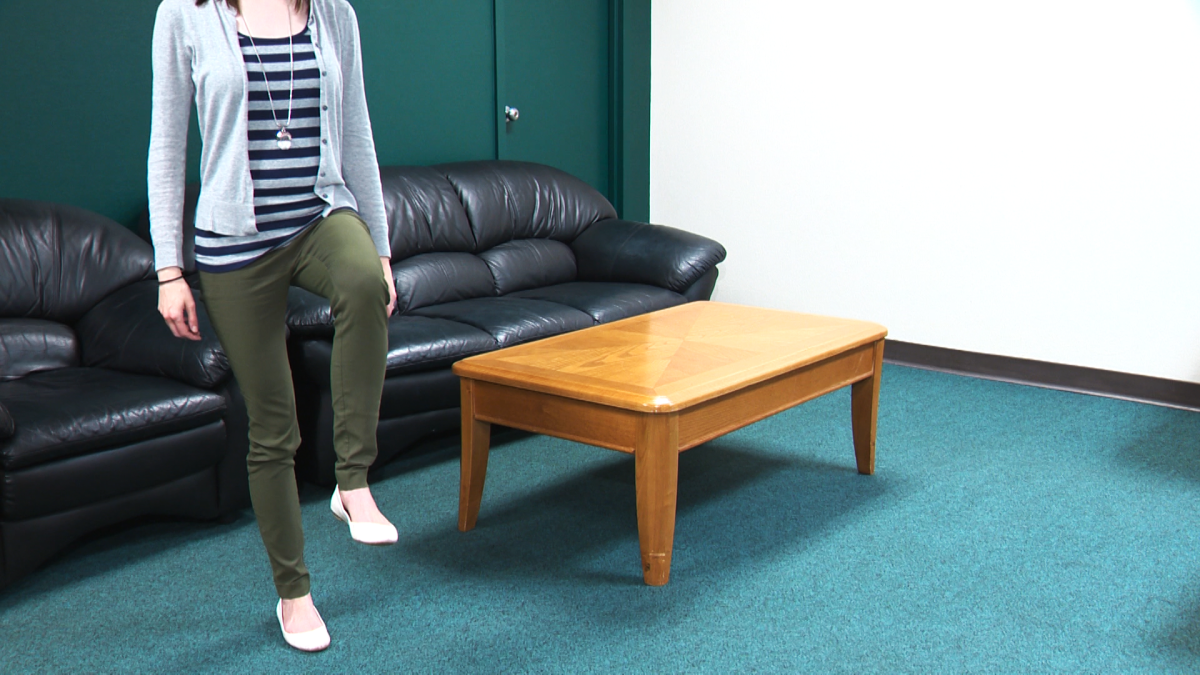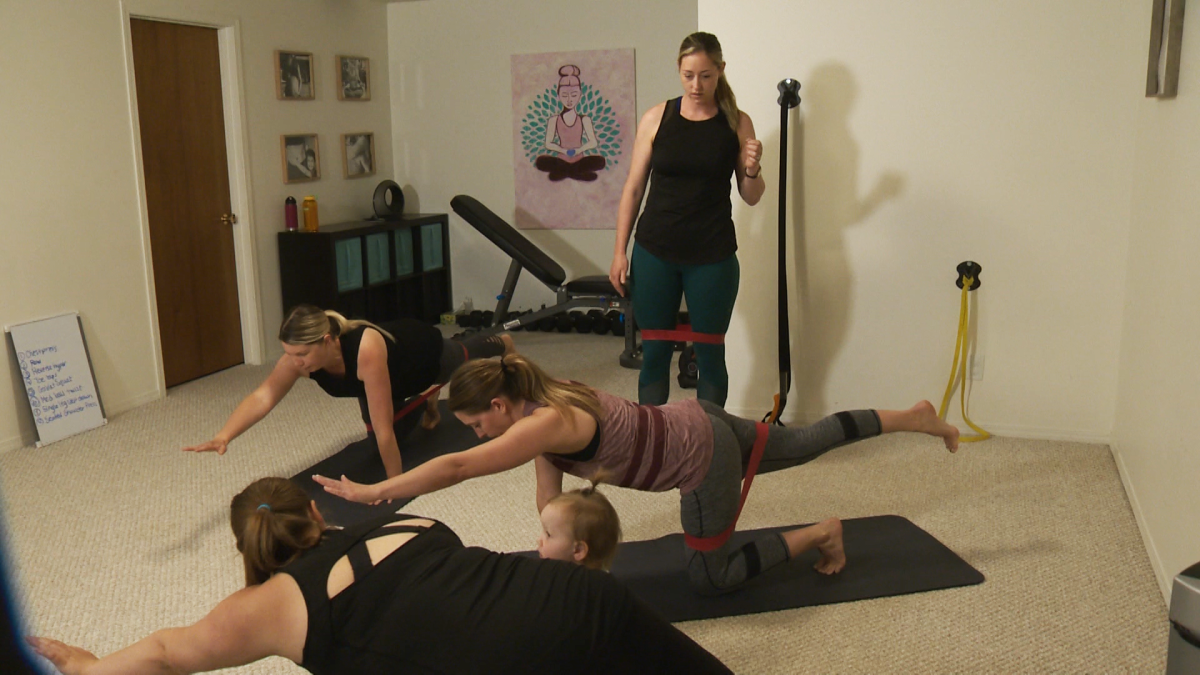After having a baby, many women struggle with their bodies — not just on the outside, but the inside as well.

They get their six-week postnatal check-up, the doctor gives them the green light and they think sex and working out will be just like it was before they had a baby.
Sadly, many times that is not the case, and it wasn’t the case for mother Kaye Burrows.
“I think everybody knows that pregnancy will feel different and birth will be hard, but then I thought after the baby I would just go back to feeling the way that I felt before the baby,” Burrows said.
“And I didn’t. I didn’t like that I would pee when I was running, or when I would pick up my kids. But I also had low back pain and pelvic pain.”
Burrows quickly realized she wasn’t alone. She constantly found herself in conversations with other moms going through the same thing.
“There’s a lot of information out there that’s inaccurate,” mom Amanda Percy said. “What I could do, what I should do; what I can’t do, what I can do.”
After four kids, Percy was suffering from both uterine prolapse — when your pelvic floor muscles can’t support your uterus — and diastasis recti, when your abdominal muscles separate.
“I don’t want to say trauma, but it is trauma to the body — it’s changes to the body.”
READ MORE: Vagina Pilates? What you need to know about pelvic floor physiotherapy
Both women ended up going to see Mary Wood, a pelvic floor physiotherapist and the clinic director at CURA Physical Therapies.
“By the time you’re at six weeks, if you’ve had leakage, it should be getting better,” Mary Wood said. “Pressure should be getting better or gone. If you had pain, it should be getting better or gone.”
Wood has a simple test she recommends all moms do.
“If you can balance on one leg for 10 seconds without a wobble, without dropping a hip or twisting or holding your breathe or pooching your belly out — chances are your body is functioning pretty well. If not, we can figure out what is causing the problem or what factors are affecting it and then teach you what to do to improve so you’re not suffering thru pain.”
For Burrows the other issue was how she was working out. She didn’t realize the boot camps and 10-kilometre runs she was going on were actually doing her more harm than good.

Get weekly health news
“I didn’t understand the way I was exercising was impacting things like sex or daily life activities, but it totally was,” Burrows said.
That’s when she began taking courses and eventually started Core Love, offering exercise programs specifically aimed at helping women after pregnancy.
“Our workouts are still really hard but we never blow past those symptoms of peeing your pants or back pain or anything like that,” Burrows said.
“If that’s happening there’s always a way to change that exercise so that you can strengthen your pelvic floor and also get a workout in.”
She also gets moms, like Percy, to focus on how they’re doing everyday activities like bending to pick up a toddler or carry a car seat.
“It’s not just one hour, once a week,” Percy said.
“She got me thinking about things every day, every moment. Checking myself: are my ribs in the right position? Am I doing things that will reduce back pain and increase flexibility and alignment in my everyday life?”
And Kaye’s number one piece of advice is simple.
“Be respectful of your body at this time. If you don’t know where your pelvic floor is, or how to move it, or how to find it or you don’t know your deep core muscles then spend some time figuring that out because you need those muscles to run or do any other activity.”
Want more ways to keep up to date? Check out the “Family Matters” podcast! If you haven’t subscribed yet — what are you waiting for?
Subscribing’s easy! Here’s how…

- Open the Apple Podcasts app, search for “Family Matters” and select it from the list of results.
- Once on the Family Matters page, click the “Subscribe” button to have new episodes sent to your mobile device for free.
- Click the name of an episode from the list below to listen.

- Open the Google Podcasts or Spotify app, search for “Family Matters” and select it from the list of results.
- Once on the Family Matters page, click the “Subscribe” button to have new episodes sent to your mobile device for free.
- Click the name of an episode from the list below to listen.











Comments